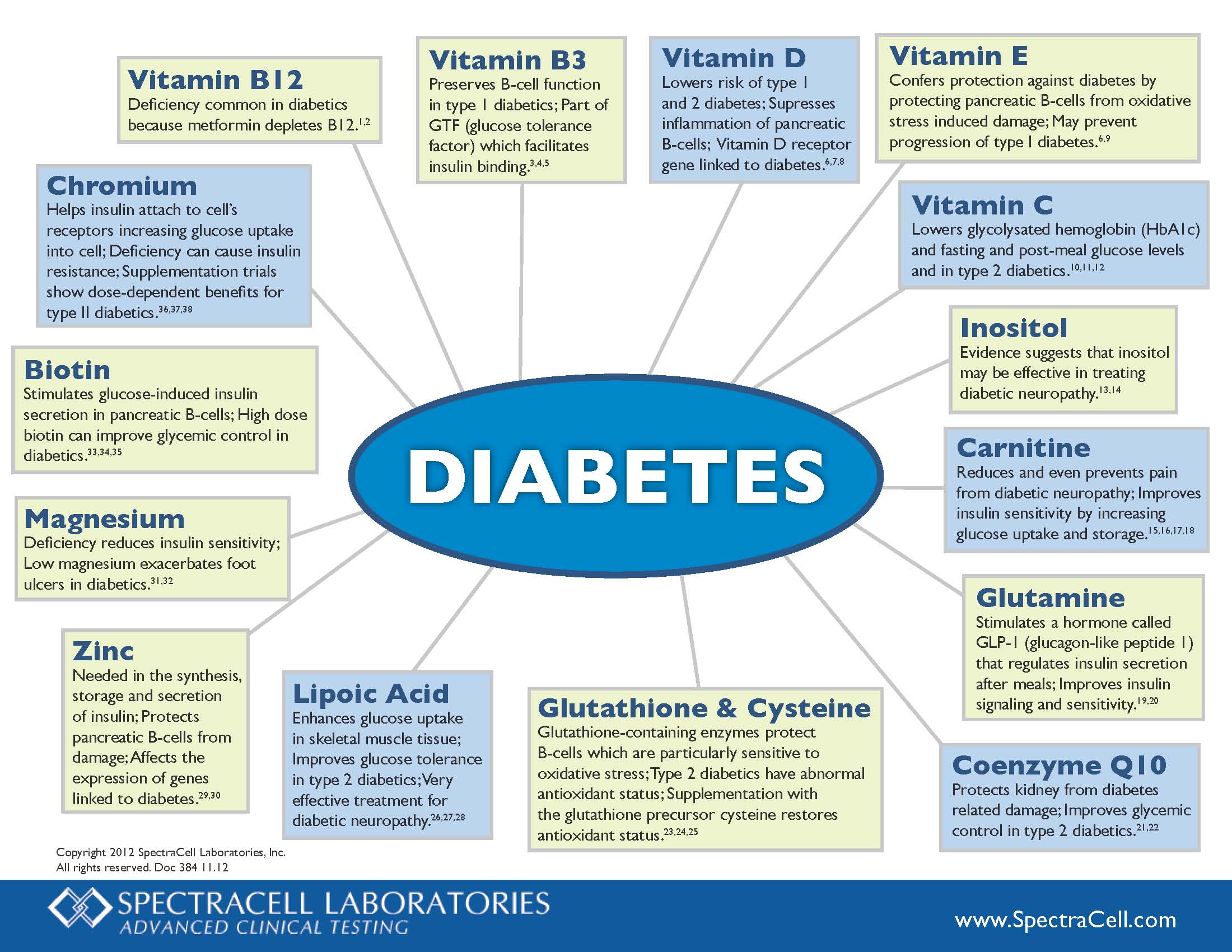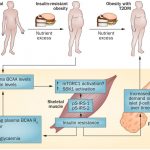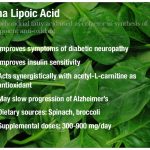THE ROLE OF MICCRONUTRIENTS IN DIABETIC HEALTH
Vitamin E – Confers protection against diabetes by protecting pancreatic B-cells from oxidativestress induced damage; May prevent progression of type I diabetes.
Vitamin D – Lowers risk of type I and 2 diabetes; Suppresses inflammation of pancreatic B-cells. Vitamin D receptor gene linked to diabetes.
Vitamin B3 – Preserves B-cell function in type I diabetics; Part of GTF (glucose tolerance factor) which facilitates insulin binding.
Vitamin B12 – Deficiency common in diabetics because metformin depletes B12.
Chromium – Helps insulin attach to cell’s receptors increasing glucose uptake into cell; Deficiency can cause insulin resistance; Supplementation trials show dose-dependent benefits for type II diabetics.
Biotin – Stimulates glucose-induced insulin secretion in pancreatic B-cells; High dose biotin can improve glycemic control in diabetics.
Magnesium – Deficiency reduces insulin sensitivity; Low magnesium exacerbates foot ulcers in diabetics.
Zinc – Needed in the synthesis, storage and secretion of insulin; Protects pancreatic B-cells from damage; Affects the expression of genes linked to diabetes.
Lipoic Acid – Enhances glucose uptake in skeletal muscle tissue; Improves glucose tolerance in type 2 diabetics; very effective treatment for diabetic neuropathy.
Glutathione & Cysteine – Glutathione-containing enzymes protect B-cells which are particularly sensitive to oxidative stress; Type 2 diabetics have abnormal antioxidant status; Supplementation with the glutathione precursor cysteine restores antioxidant status. Glutathione is very helpful with modulating inflammation cascades so common in autoimmune processes.
Coenzyme Q10 – Protects kidney from diabetes related damage; Improves glycemic control in type 2 diabetics.
Glutamine – Stimulates a hormone called GLP-I (glucagon-like peptide I) that regulates insulin secretion after meals; Improves insulin signaling and sensitivity.
Carnitine – Reduces and even prevents pain from diabetic neuropathy; Improves insulin sensitivity by increasing glucose uptake and storage.
Inositol – Evidence suggests that inositol may be effective in treating diabetic neuropathy.
Vitamin C – Lowers glycolysated hemoglobin (HbA1c) and fasting and post-meal glucose levels and in type 2 diabetics.
https://www.helpmychronicpain.com/blog/bid/112074/The-Role-of-Micronutrients-In-Autoimmune-And-Diabetic-Health






